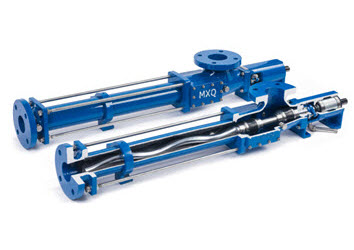Progressive cavity pumps are a crucial part of oil & gas, pulp & paper, chemical, food & beverages, and wastewater treatment industries. They work on the principle of rotary positive displacement. Progressive cavity pumps are especially designed to handle viscous fluids and slurries with solids and particulate matter at a constant flow. These pumps comprise a rotor and a stator with fixed-size cavities in between. The performance of a progressive cavity pump entirely depends on these key components.
These pumps are designed to resist high temperatures and harsh working conditions. However, considering the kind of strain these pumps bear and the overall wear they undergo, they require periodical maintenance, repair, and may also need replacement parts. There are many factors that may affect the performance of these pumps in a long run. What are those factors? Read the post to find answers.
Common Causes of Failures of Rotors and Stators in Progressive Cavity Pumps
Of all the progressive cavity pump spare parts, the stator and rotor may need to be replaced more often than the others. Here are some of the common causes of failure in rotors and stators:
- Wear and Tear of the Stator: The stator’s constant rotating action causes friction to some extent. This leads to wear and tear over the time. The frequency at which corrosive and abrasive fluids, harsh chemicals, and semi-solid materials are transferred through the pump also decides the need for replacement of the part.
- Wear and Tear of the Rotor: The spindle-shaped rotor can be made from various grades of stainless steel. While it may be advisable to replace the rotor and the stator at the same time, the rotor does not wear out as fast as the stator. However, if you deal with semi-solid fluids, then it is recommended to change both the rotor and stator in one go. This is because if the rotor wears out, it could cause leakage of some solid particles in the fluid, and this may further wear out the stator.
- Wear Due to Abrasion: When the plating on the rotor becomes worn out, it causes abrasion, which affects the connection between the rotor and the stator.
- Acid Attack: The rotor may suffer an acid attack if the pH of the fluid falls below 6. This strips off the plating resulting in a rough surface.
- Cyclic Stress: If the rotor is not inserted properly during installation, the outer part of the rotor can experience excessive motion. This results in cyclic stress and subsequent fatigue failure of the rotor.
- Run Dry: In case of a stator, its elastomer can develop cracks if a pump runs dry, without any fluid.
- Hysteresis: In case of excess pressure on the elastomer, a condition called hysteresis can occur. This occurs due to the aging of the pump; however, premature hysteresis may occur due to improper rotor insertion or incorrect depth setting.
- Locked Induction Motor: In case of a locked-up induction motor, the three-phase windings of a stator may be damaged.
Therefore, whatever the issue, the operation and productivity can be hampered without preventative and periodical maintenance.
Preventive Maintenance
Based on the pump’s physical appearance and overall functioning, weekly or yearly maintenance is crucial. This not only enhances the pump’s shelf life, but also saves huge costs in the long run. To find out if the pump is working properly, it is advisable to carry out a weekly inspection, wherein one can check the physical parameters such as the flow, pressure, noise, and temperature. Here are a few pointers in regards to doing periodical checks:
- Adjust the packing and replace it periodically.
- Check the internal condition of the pipe.
- Check the shaft.
- Check if the bearings are lubricated.
- Check the screws, joints, and other fittings.
All these progressive cavity pump parts together function as a cohesive unit and contribute in their own way in getting the fluid through, no matter how viscous it is. The rotors and stators are almost like the heart of the pump and like any other machine or equipment, they need to be maintained well. If you discover any changes in the operations of your pumps, find out if they need to be replaced or repaired. MXQ is a trusted supplier of a variety of progressive cavity pumps and spare parts with 100% equivalency to Bornemann, Netzsch, and Moyno brands.


